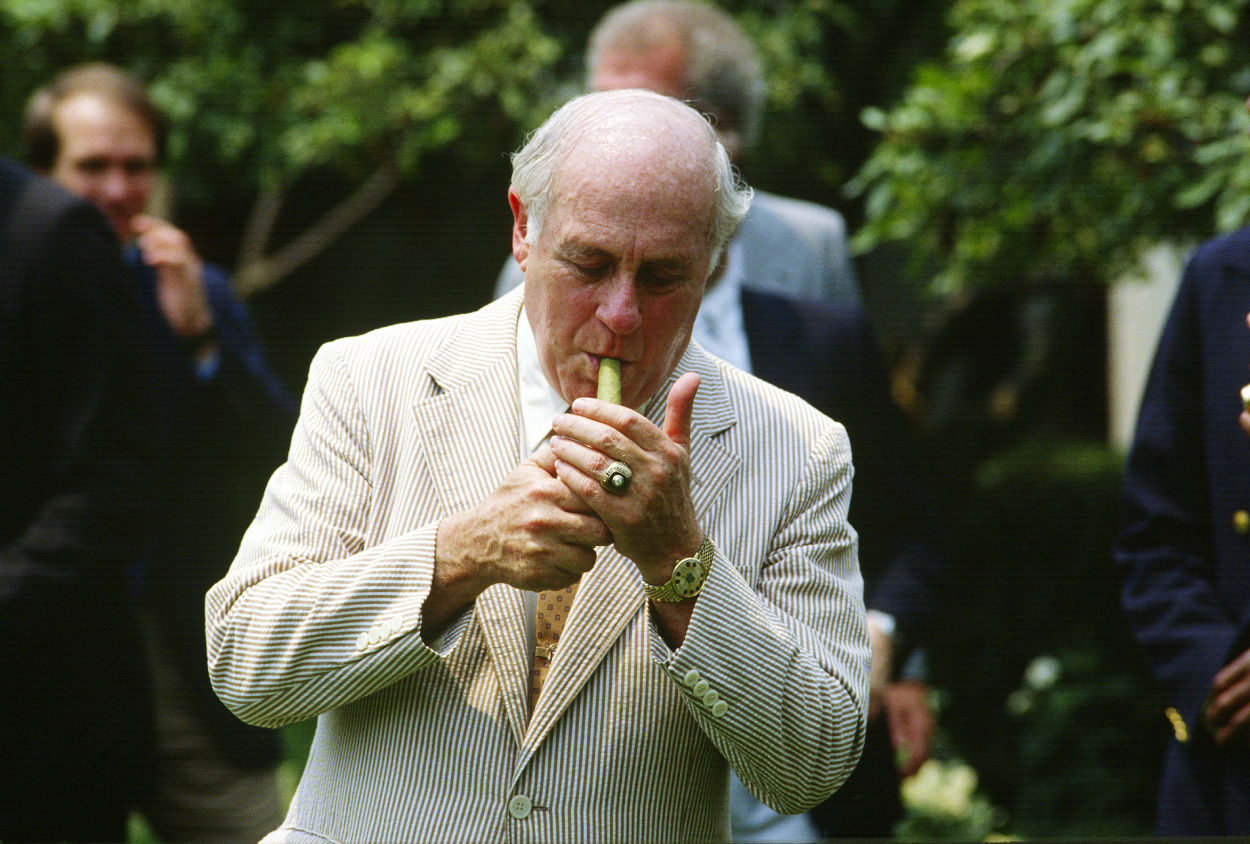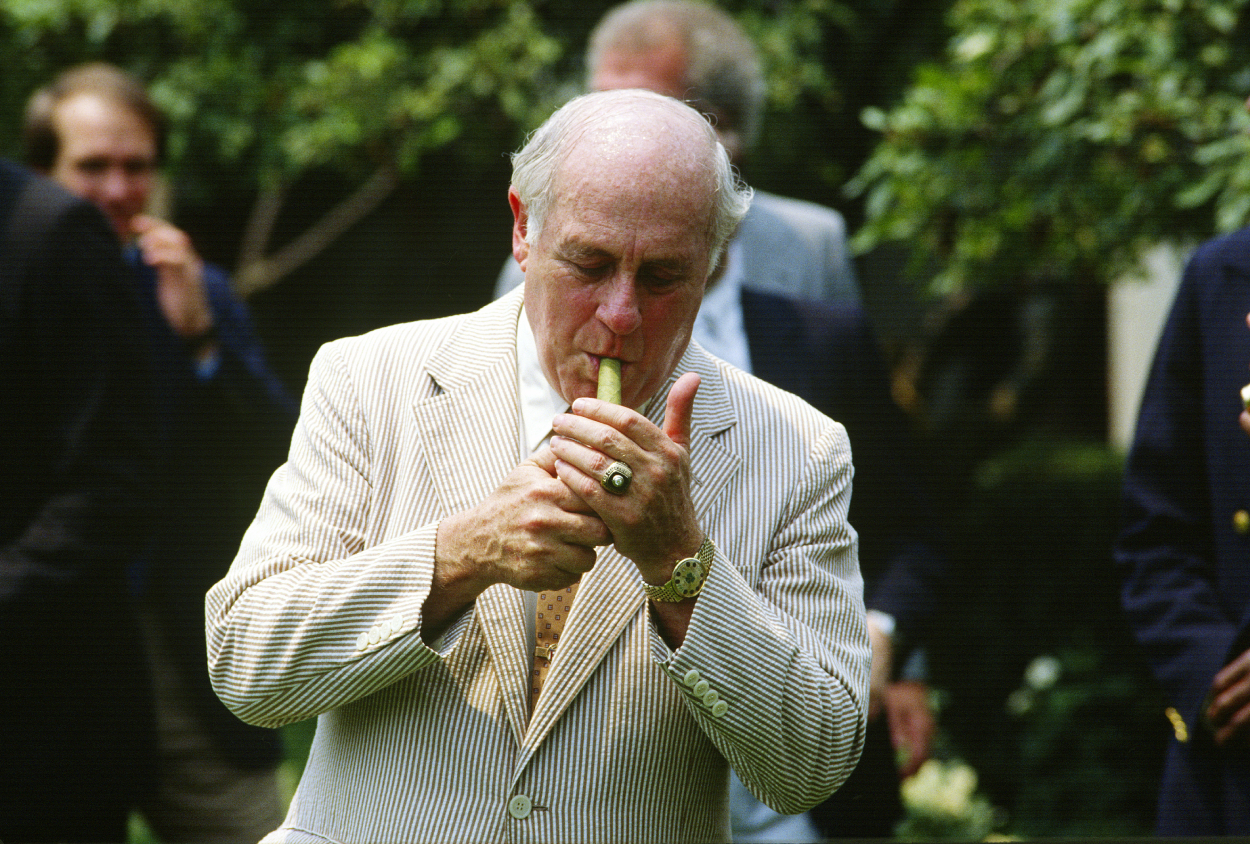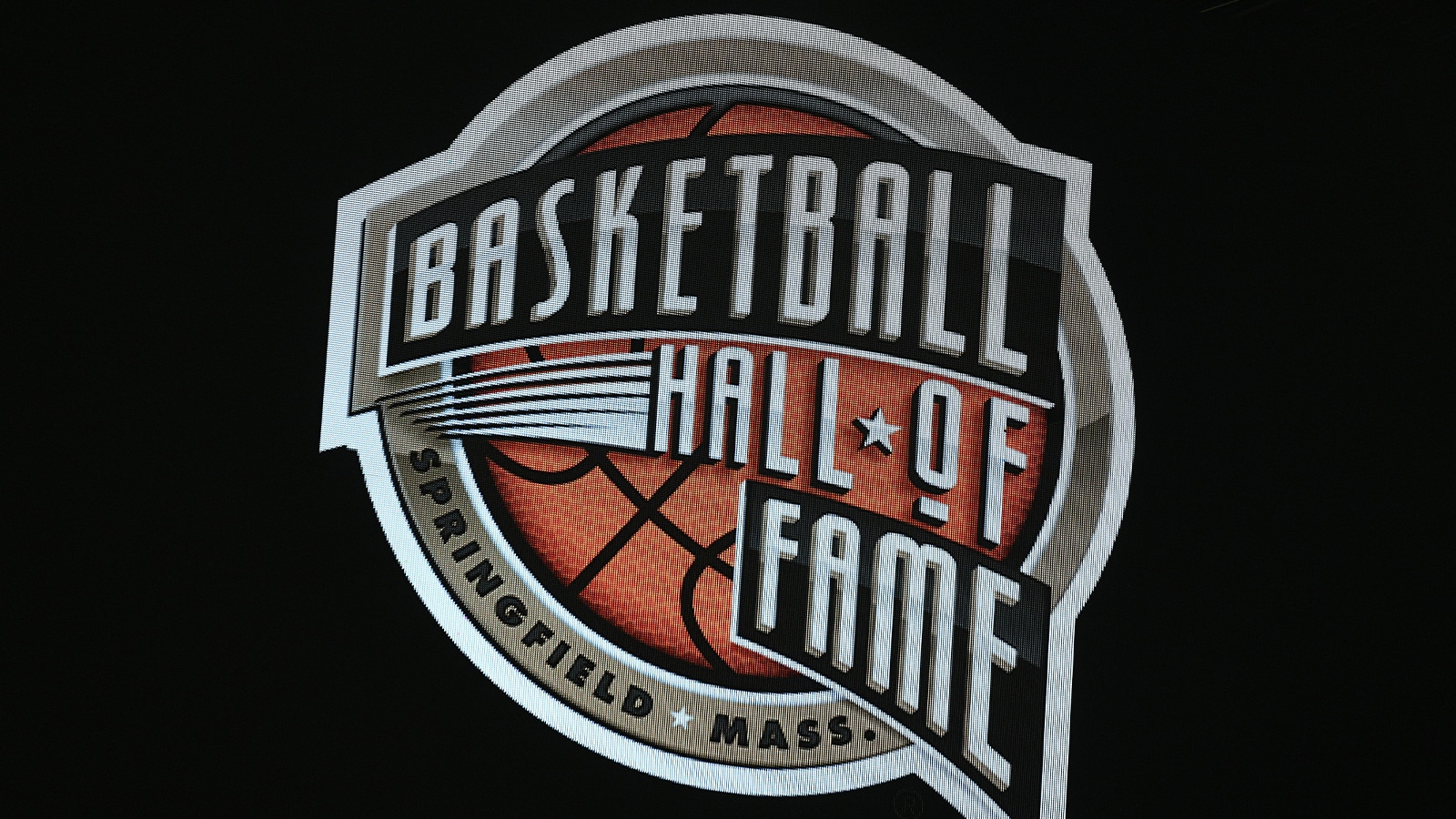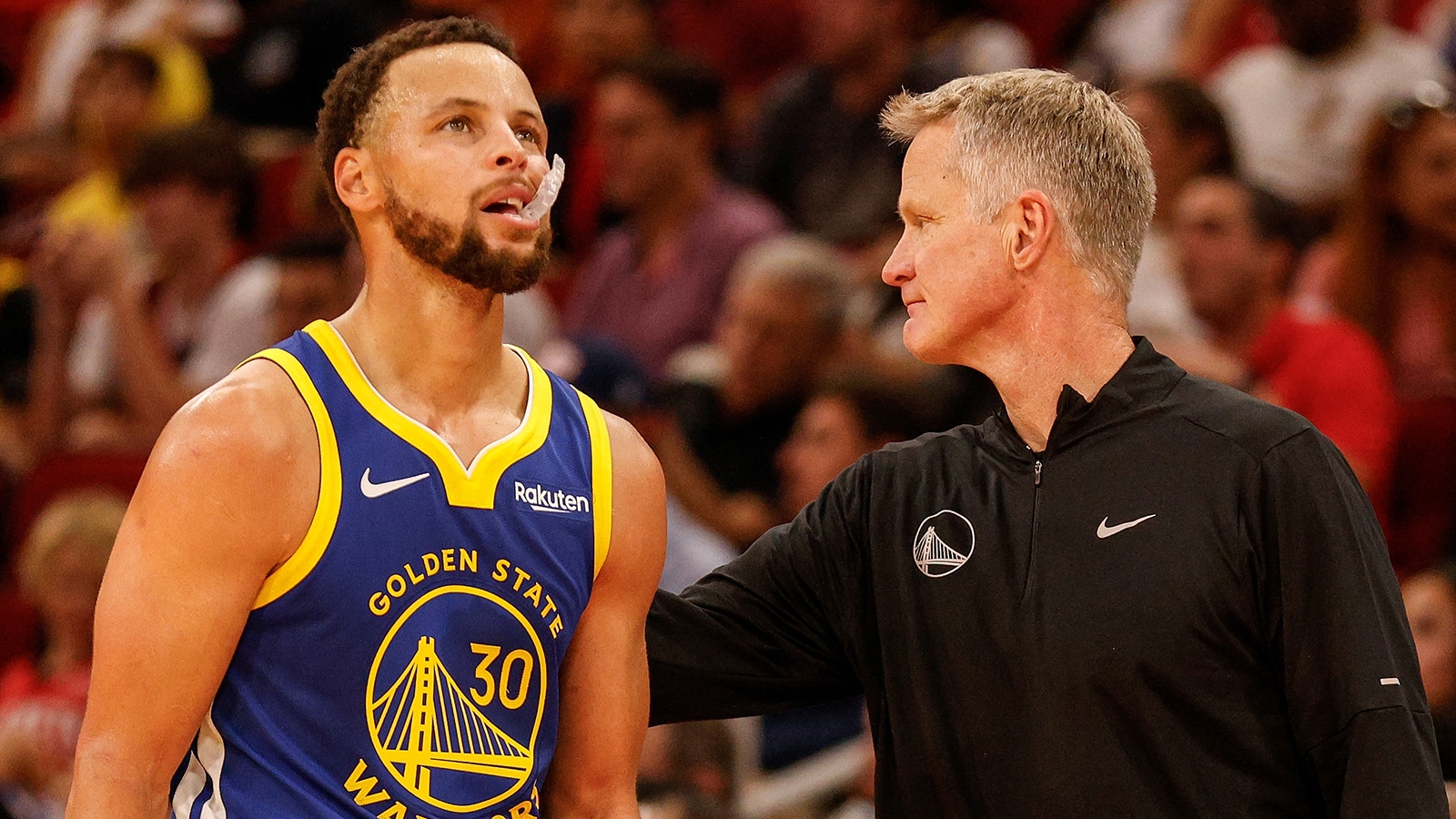
Why Did Red Auerbach Smoke All Those Cigars and Hold a Rolled-Up Game Program While Coaching the Boston Celtics?
Aside from winning, former Boston Celtics coach and team president Red Auerbach was known for a few other things. He was famous for being booed whenever he went on the road. He also had a few quirks, such as lighting his cigars and having a rolled-up game program in hand while on the bench. The man with nine NBA championships as a coach and seven more as a team executive once explained those antics.
Red Auerbach got used to hearing all those boos with the Boston Celtics

When you win, everyone is gunning for you. You become the enemy. The Celtics, under Auerbach as head coach, won eight straight NBA titles from 1959-1966. They weren’t well-received on the road.
When Auerbach was a guest on The Regis Philbin Show in 1965, he entered the show to a warm reception from the studio audience. That was foreign to him. Philbin even joked about it, saying the applause for Auerbach made him feel uneasy.
Auerbach took the booing in stride. He usually responded with a wave, likely generating more resentment. The booing never bothered him as long as his team was winning.
“What are you going to do?” Auerbach said to Sports Illustrated in 1965. “A boo is a boo. Generally, you don’t take the time to figure out what kind of a boo it is, whether it’s a good-natured boo, for instance. It’s a boo and the hell with it.”
Why did Red Auerbach smoke all those cigars and have a rolled-up game progam in hand?
Back in 1946 when Auerbach was coaching the Washington Capitols, he noticed that after games, his knuckles were swollen from pounding his fists, according to Sports Illustrated. He rolled up the game program and squeezed it tightly during moments when he had a problem with an official or when he was frustrated with his team.
As for the cigars, it was a way of annoying the higher-ups in the NBA and many non-Boston fans. Auerbach usually lit the cigar when victory was evident. He also found a way to make a few bucks from those cigars.
“Years ago,” Auerbach said, “when (the NBA) were picking on me for a hundred different things, I tried to think of something to aggravate them. They were abusing me. I lighted a cigar all of a sudden. I got a note: ‘It doesn’t look good for you to smoke cigars on the bench.’ I told them I’d stop when the other coaches stopped smoking cigarettes. By then, I liked the idea, and the people from Blackstone wanted me to endorse their cigar.
“Some of the coaches got aggravated. They thought I was lording it over them. The cigar is a sign of relaxation. The cigarette is a sign of tension. I explained to them that it was an endorsement, that I get money and all the cigars I can smoke. That calmed them down. Why stop a guy from making a buck? However, the fans think this is a major thing.”
Auerbach goes down as one of the most successful coaches and executives in NBA history
Auerbach coached the Celtics from 1950-1966. He piled up 938 regular-season victories, 795 of them with the Celtics. He won his first NBA title with the Celtics during the 1956-57 season when he compiled a 44-28 record. The following year, he guided the team to the NBA Finals, where they lost to the St. Louis Hawks in six games. He then won eight straight championships before retiring from coaching after the 1965-66 season.
After his coaching career, he became team president and served as a front-office executive with the Celtics until his death in 2006. During that stretch, he added seven more championship rings. He was inducted into the Naismith Memorial Basketball Hall of Fame as a coach in 1969.
All that winning made Auerbach a target. It was more than the boos. He had objects thrown at him, and sometimes fans got physical with him.
“A lot of people feel a ticket gives them a license to berate you,” he said. “A coach should have the right to be unmolested. It’s murderous.”
Away from the court, he was mild-mannered. Some even believed his intense behavior on the court was an act.
“Basketball is a game of high emotion,” Auerbach said. “In my house I don’t go around yelling, blowing my top, losing my temper. Home is a different world, a different game. It’s all realistic. If this is an act, I’d be an actor. I wouldn’t be a coach.”



